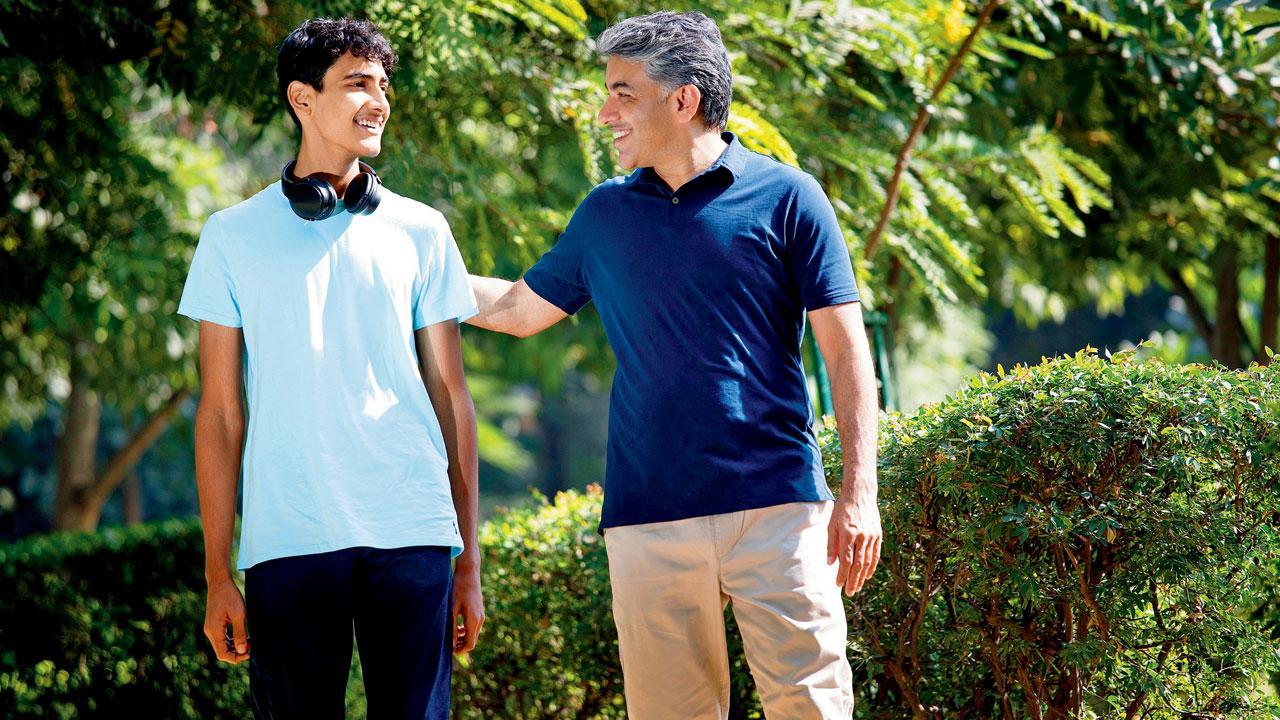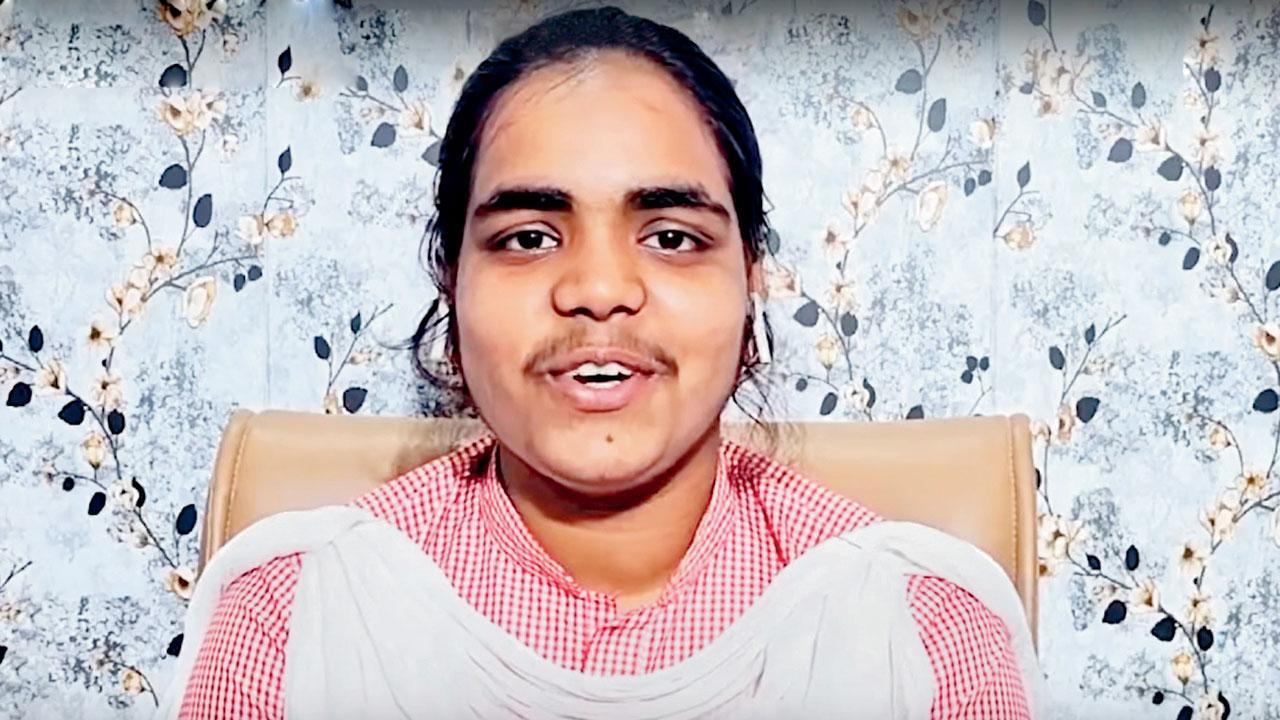Being trolled for her appearance instead of earning praise for her academic achievements is the unfortunate reality that has followed Prachi Nigam’s topping the UP boards. Experts suggest strategies to help parents support their kids through such tumultuous, confusing times

The hormonal changes result in development of features such as growth of facial hair or a change in vocal pitch for boys. During such confusing times, parental support can be pivotal. Representation pics
Scoring an impressive 98.5 per cent in her Class 10 board exams to emerge as the topper in one of India’s largest states should have been a proud and joyous moment for 15-year-old Prachi Nigam. However, when the Uttar Pradesh native’s photograph appeared alongside her accomplishments on social media, she was subject to relentless and brutal trolling on account of her appearance, with much of the hate directed towards her facial hair.
Since then, Nigam has hit back at the trolls stating that she does not let the negativity affect her and is choosing, instead, to focus on her academics. However, the incident has sparked several conversations about how vulnerable teens can come into the crosshairs of appearance-based judgment and scrutiny, as they grapple with the physical and emotional changes that accompany puberty.
An uncomfortable transition
“Puberty is a phase defined by rapid physical and emotional development. Physically, adolescent boys and girls experience accelerated growth in their height, weight and muscle mass. This is also when their bodies develop secondary sexual characteristics, including the development of breasts in girls, the growth of facial and body hair in both boys and girls, and changes in voice pitch. Boys typically develop broader shoulders and a more muscular physique, while girls develop wider hips and a more defined waistline. Further, girls start menstruating as their reproductive systems mature, and many boys and girls develop acne and oily skin,” shares Dr Nandita Palshetkar, obstetrician and gynaecologist.

A personal care company ended up creating an inadvertent controversy with their campaign for Nigam. Pic Courtesy/Shantanu Deshpande on LinkedIn
During puberty, the pituitary gland releases hormones that stimulate the gonads (testes in boys and ovaries in girls) to produce sex hormones. These hormones are responsible for many physical and emotional changes, explains Dr Nazneen Ladak, a psychiatrist. The child’s prefrontal cortex, responsible for decision-making and risk assessment, is still developing, which can influence his or her emotional and social behaviour. “Hormonal fluctuations can potentially exacerbate tendencies toward depression and anxiety, while the ongoing brain development can result in increased impulsiveness and emotional outbursts. This emotional roller coaster can be confusing and overwhelming for teenagers,” she adds.

Prachi Nigam. Pic Courtesy/YouTube
At the same time, changes in hormone levels can lead to mood swings, increased emotional sensitivity and irritability. All of these can have a significant impact on a child’s mental health. Children may feel self-conscious about their changing bodies, especially if they feel that they do not meet society’s standards of what is considered beautiful. This, when combined with peer pressure and societal xpectations, can lead to feelings of inadequacy and low self-esteem, says Palshetkar. “Children who are uncomfortable or unhappy with their changing appearance may withdraw from social situations, and isolate themselves from their peers. They may also be subjected to bullying and teasing, which can have long-lasting psychological effects,” she points out.

Dr Nazneen Ladak
Help them cope
“In her interviews, Nigam demonstrates a calm clarity about the medical reasons for her facial hair. Such fact-based awareness can form a strong foundation for a healthy body image, experts say. “One way parents can help their child to cope with this tumultuous phase is to share books or resources that explain the process in a straightforward, reassuring manner. Consider engaging in activities that promote learning, such as attending workshops or health classes together,” says Ladak. Additionally, here are some other strategies you can try, to make the transition easier:

The menstruation cycle for girls begins in their adolescence, and adds to their anxiety and self-consciousness
>>Body neutrality over body positivity: While body positivity seeks acceptance for and celebration of all body types, it can inadvertently accord undue importance to one’s appearance, says Dr Nahid Dave, a psychiatrist at Thought Matters. She recommends adopting a body-neutral attitude that prioritises what the body can do rather than what it looks like. “Body neutrality stresses on the fact that an individual’s value is not determined by how they look or feel about their appearance. On the other hand, body positivity can sometimes achieve the opposite of what the movement set out to do, as it places undue pressure on people to celebrate their appearance, even when this celebration feels inauthentic. Body neutrality is thus a more pragmatic and realistic approach,” she clarifies.

Dr Nandita Palshetkar
>>Reinforce achievements, not appearance: Ladak recommends emphasising qualities and achievements that aren’t related to physical appearance. “Encourage your child’s talents and interests, which can provide a solid foundation for self-esteem,” she says. Similarly, Dave advises that parents steer clear of obsessing too much about their own appearance, and seeking validation from others in the form of compliments. “It’s important for parents to develop a healthy relationship with their bodies so that they can model the same to their children,” she elaborates.
>>Don’t overcompensate: One approach that people use to try and shield their children from bullying or criticism is to become a ‘helicopter parent’ version of themselves. They embed themselves very deeply into their child’s activities and social life in a bid to protect them from pain and disappointment. This approach can lead to children feeling extremely ill-prepared to cope with the challenges they face in their later years. “Learn to listen to your child and acknowledge what they are going through. If they are being bullied, ask your child what they want you to do, to help. Although this is an uncomfortable time, it can also teach your child valuable coping skills and resilience,” Dave explains.

Dr Nahid Dave
>>Be realistic: In recent times, the concept of ‘pretty privilege’ has gained a lot of traction on social media. It means that people who are perceived as being good looking or better groomed automatically receive preferential treatment and are perceived as being more competent. “If your child is at the receiving end of such biases, you can help your child to cope by firstly, accepting that such biases exist, but also emphasising to your child that this perceived advantage is very temporary and that being talented, consistent and hard-working will open doors for them in the long term. If your child is old enough, you can also explain how societal standards of what is considered desirable keep changing to highlight the fleeting nature of such superficial judgments,” Dave signs off.
 Subscribe today by clicking the link and stay updated with the latest news!" Click here!
Subscribe today by clicking the link and stay updated with the latest news!" Click here!








